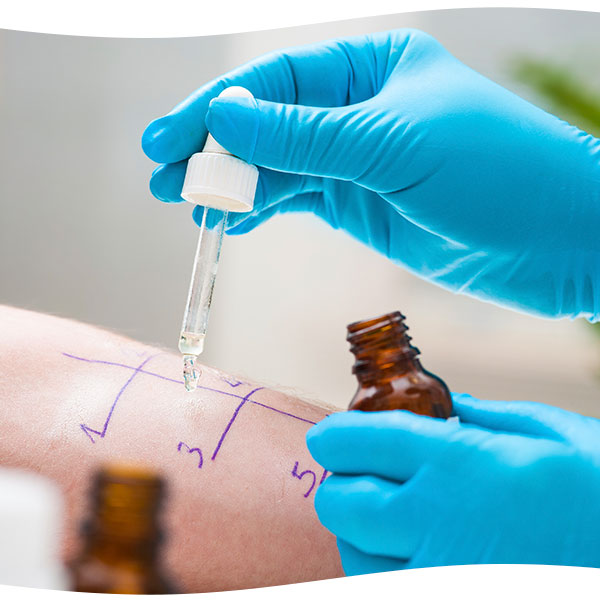At Bluegrass Allergy Care we first consult with our patients to determine if allergy testing is necessary. If allergy testing is needed, we choose the type of test that is best for the patient. We use special, new procedures when conducting allergy tests for young children, to make the testing as comfortable as possible.
We can test for all types of allergies, including:
Skin testing is the most common type of allergy test. With this method, a small drop of an allergen is pricked or scratched onto the skin, usually on the back or forearm. In some cases, the test may require the allergen to be injected into the skin.
If the skin has a reaction of itching, redness, or swelling in the small, scratched area, then that indicates a potential allergy. The actual pricking or scratching causes no discomfort. If the skin reacts to the allergen there may be a short period of discomfort or itching.
Allergy skin tests provide quick results. Usually the test results will be completed during your office visit.
Certain medications can also interfere with skin tests. In cases where those medications cannot be temporarily discontinued, a blood test may be performed.

Allergies may also be tested using a blood sample. Blood testing is performed if the patient is at risk for a severe reaction to an allergen, or unable to stop taking certain medications that interfere with allergy skin tests. Generally, allergy skin tests are felt to be more accurate than blood tests.
Allergy blood tests are sent to a lab for testing, so results are usually received in three to five business days.
Patch tests may be used to help diagnose skin allergies triggered by contact with certain substances or chemicals like rubber, cosmetics, or metal. Patch testing can be used to test for the most common skin contact allergens.
A series of patches are adhered to the patient’s back. When the patches are removed, an initial reading is done. A final reading is performed two days later and the results are then discussed.